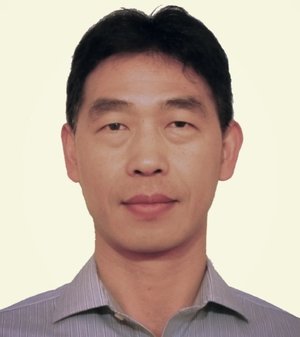Xiaodong Tan, Ph.D.
Meet the Researcher
Tan received his Ph.D. in biomedical sciences from Creighton University in Nebraska and completed postdoctoral research at the University of Wisconsin–Madison and Northwestern University, Illinois, where he is currently a research assistant professor in the department of otolaryngology – head and neck surgery. Tan’s 2017 Emerging Research Grant is generously supported by HHF’s Board of Directors as well as supporters who designated their gifts to fund the most promising hearing research.
A serendipitous meeting on a badminton court in China, with an oncologist who later became a good friend, provided the impetus for this research project. During one of our many discussions about science, he told me about a cancer-fighting magnolia plant extract called honokiol. Since the molecular mechanism of honokiol works for both cancer suppression and normal tissue protection, I immediately saw that honokiol could be a promising candidate for hearing protection.
For instance, we know that cisplatin, a common chemotherapy drug, increases oxidative stress, causing the loss of auditory sensory hair cells and resulting in hearing loss. But other drugs that relieve this adverse effect also compromise the antitumor effect of cisplatin.
Honokiol, by contrast, has been shown to both suppress tumor growth while protecting normal tissue and cells from oxidative stress by improving mitochondrial function. Since the auditory outer hair cells are extremely vulnerable to oxidative stress, it is expected that honokiol can protect against cisplatin-induced hearing loss, and it may also prove beneficial to fight noise-induced and age-related hearing loss.
After conducting several promising pilot studies, I have begun the process of verifying and understanding how honokiol protects hearing during chemotherapy. The long-term goal is to develop a new therapeutic regimen for chemotherapy that reduces tumors but protects hearing, thus improving the quality of life after treatment.
I grew up in a family that values knowledge, science, and technology. My grandfather had severe hearing loss due to exposure to loud noises without having hearing protection. Although he has passed away, I hope my study can help people like him in the future.
My aim is to further our understanding of hearing loss and protection through describing the working mechanisms, application, and limitations of honokiol. I am hopeful that a healthcare product for hearing loss based on the hearing protective effect of honokiol will be able to be launched in the market, for drug-induced as well as noise-induced and age-related hearing loss, and that I will be able to see the positive influence of this study on hearing health for cancer patients and older adults as well as the general population.
Xiaodong Tan, Ph.D.’s grant was generously supported by HHF’s Board of Directors as well as supporters who designated their gifts to fund the most promising hearing research.
Click to download a PDF of Dr. Tan's Meet the Researcher profile.
The Research
Northwestern University
Oto-Protection of Honokiol Against Cisplatin-Induced Ototoxicity
Cisplatin is a common chemotherapy medication known to be ototoxic (damaging to hearing), but most proposed drugs to counteract this side effect compromise the antitumor effects of cisplatin. Honokiol is an antitumor agent derived from the magnolia plant that has been shown to have synergistic effects with cisplatin in cancer treatment because it activates an enzyme that protects healthy cells and suppresses tumor cells. As a result, honokiol may have a strong protective effect for cochlear hair cells. This study will investigate the hearing protective properties of honokiol using tissue cultures in the lab as well as through direct drug administration in an animal model.
Long-Term Goal: To develop a new therapeutic approach for chemotherapy that includes hearing protection by reducing or eliminating the ototoxicity of the common chemotherapy drug cisplatin, and ultimately to determine whether honokiol may be effective for noise-induced or age-related hearing loss.


